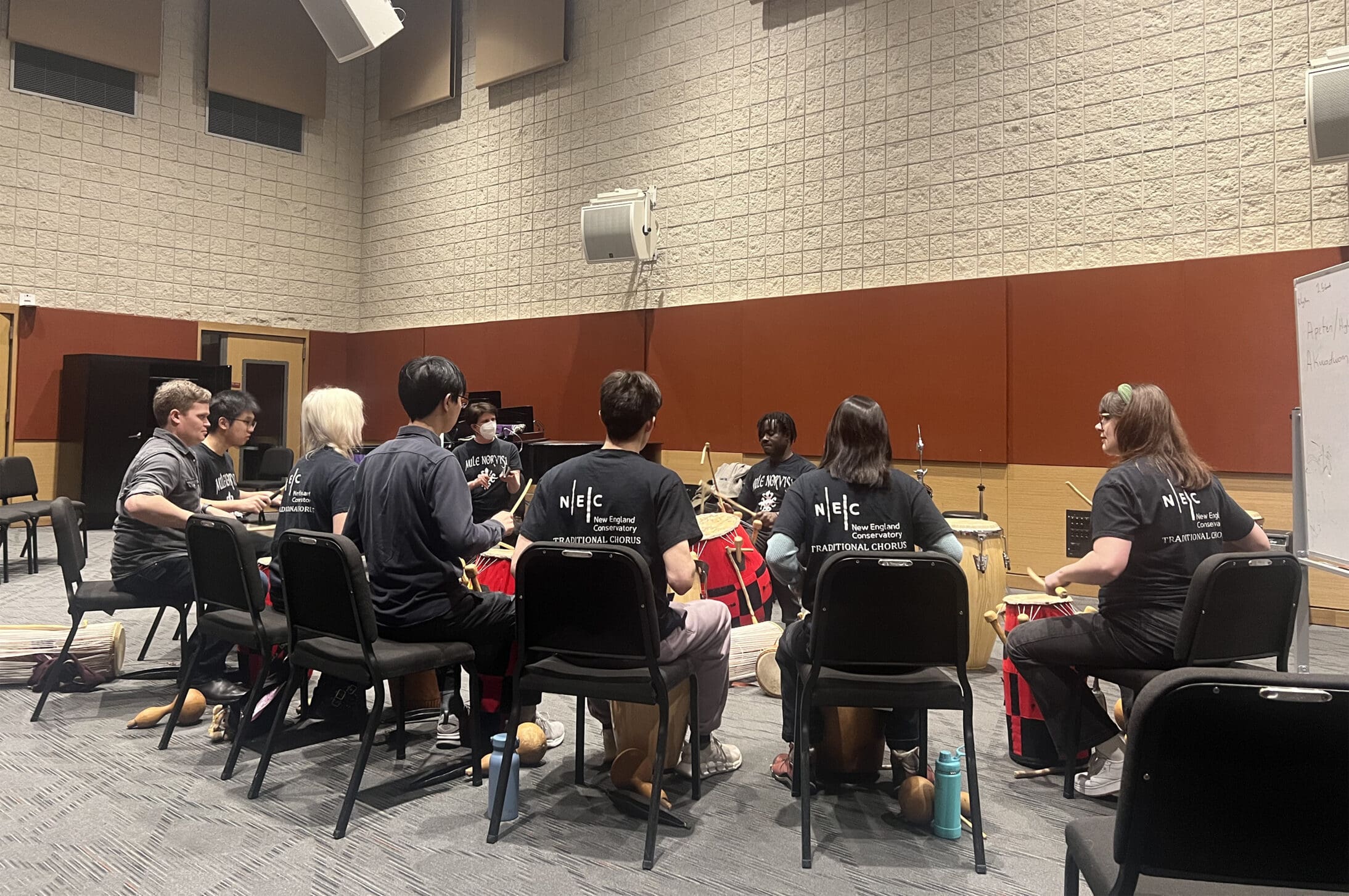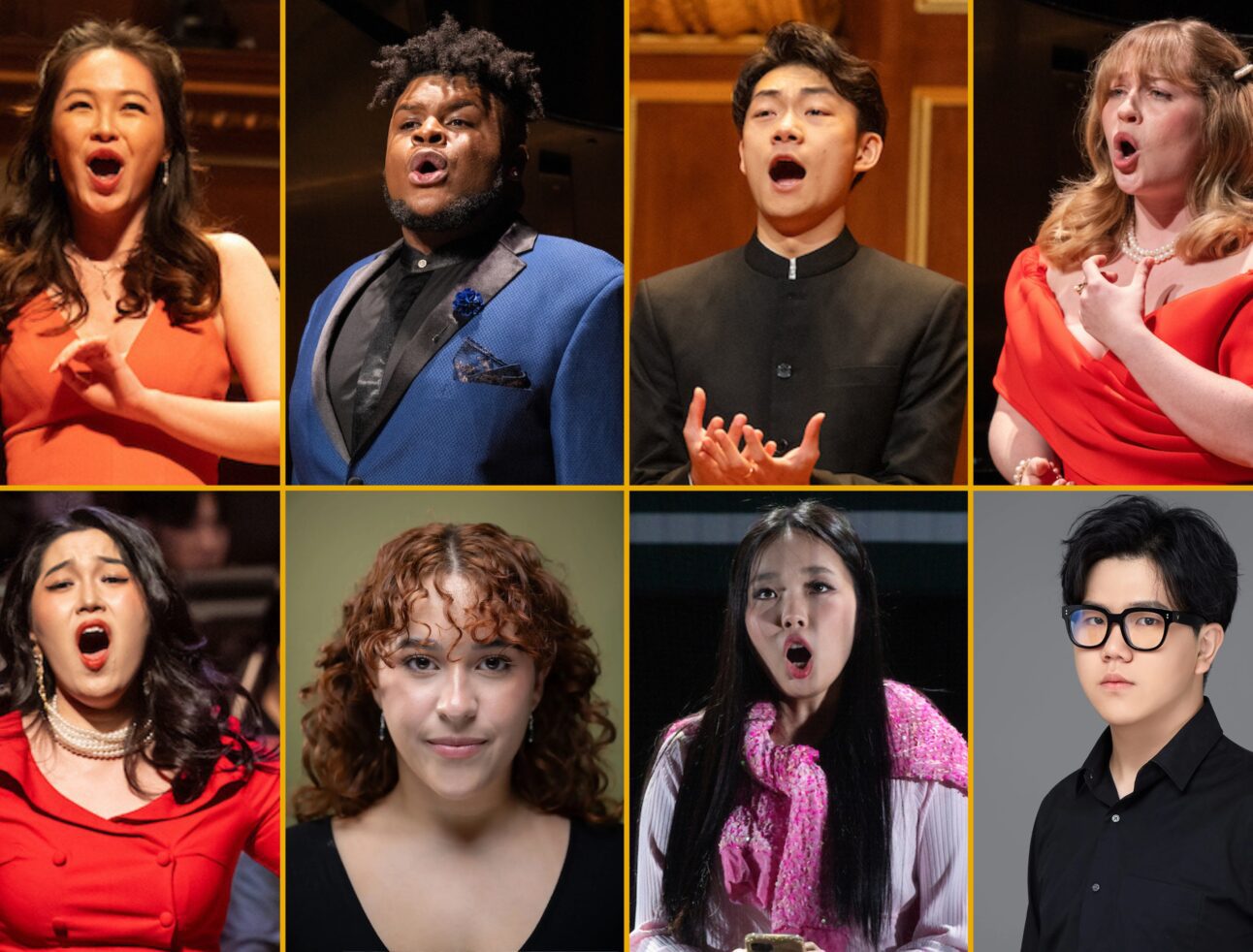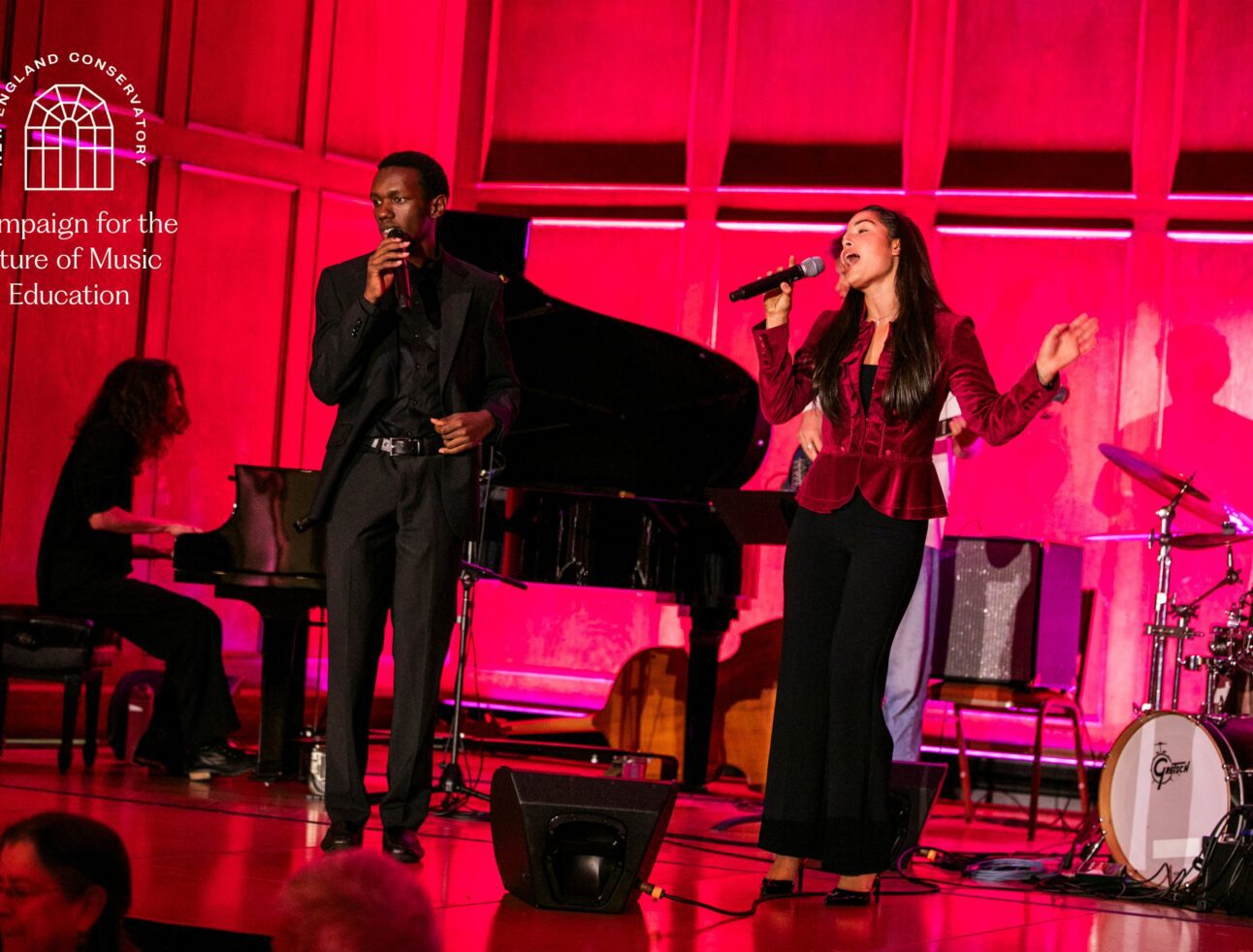On Monday afternoons, a group of New England Conservatory graduate students gather to learn about Ghana through a music theory lens from NEC faculty member and leading scholar on the subject, Dr. Felicia Sandler. Then, on Thursdays, they meet again with Dr. Sandler and royal drummer Professor Emmanuel Attah Poku, who teaches the students how to dance and drum rhythms from the Ashanti region of Ghana, bringing their newly gained knowledge into a lively practice. Effectively bridging the gap between theory and real-life application, this integrative lab-lecture combination is a new addition to NEC’s curriculum and a meaningful update to a course offered by the Theory Department for the last decade: Music of Ghana.
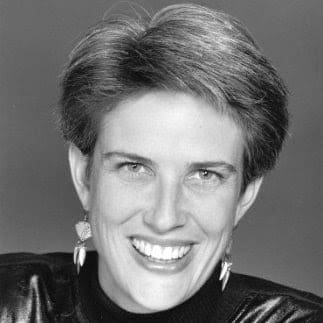
Dr. Sandler, a composer and music theorist, introduced Music of Ghana to NEC’s theory curriculum in 2014, inspired by her long-term study and love of West African music and a departmental desire to diversify curriculum offerings. Outside of teaching, Dr. Sandler is currently working on a collected critical edition of the works of Dr. Ephraim Amu, a West African composer whose work Professor J.H. Nketia, a preeminent scholar of West African music, introduced to her years ago.
“That’s how I got interested in this music,” Dr. Sandler explained. “Dr. Amu’s music is this mixture of traditional Ghanaian music and Western influences from the colonial period, so I need to know more about the traditional music to understand it. I’ve had some studies with Prof. Poku and with some other phenomenal Ghanaian musicians, and I continue to do that work.”
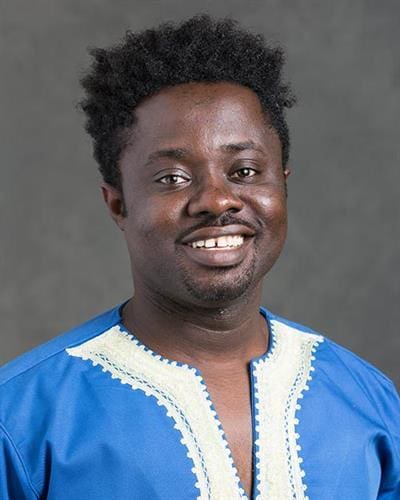
Few individuals would be better equipped to teach the lab component of Music of Ghana as Prof. Poku, a prominent royal drummer who has lived a life completely immersed in the music and culture of Ghana, particularly the Ashanti region where he grew up. Prof. Poku was born and raised inside the palace of the Ashanti King, where his grandparents were musicians. At ten years old, he joined the Ashanti King’s percussion ensemble. Performing as the lead drummer for the Kumasi Centre for National Culture, the Ashanti King’s Fontomfrom ensemble, and the renowned Nsuase Kete group, he has toured Africa extensively, playing in Ethiopia, Sierra Leone, Nigeria, Togo, and Benin. Ten years ago, Prof. Poku joined the faculty at Tufts University.
“I was in Ghana in 2014 when the Ashanti King was doing a big festival called Akwasidae, which is a celebration of ten years since he became king,” said Prof. Poku. “A professor at Tufts named David Locke came to the festival, and we had a conversation about a position. I’ve been there [at Tufts] since then, but I always go home every summer to serve the King, and anytime he comes to the U.S., I get an invitation to go perform for him.”
It was at Tufts that Dr. Sandler and Prof. Poku first connected ten years ago during a weekly community music gathering of the Agbekor Drum and Dance Society, which led to the initial version of the collaboration between the two schools in which students in Dr. Sandler’s Music of Ghana course would join with Tufts students for a performance at the end of each semester.
“Our two institutions would come together and put on a show, and we [NEC] would do the singing,” said Dr. Sandler. “But every semester, students said, ‘I wish we could have learned some of the drumming and dancing.’ So, we proposed it to the curriculum committee, and they accepted it. This semester is the first time it’s happening this way.”
During the lecture portion of Music of Ghana, Dr. Sandler immerses students in media surrounding traditional Ghanaian repertoire. The class analyzes readings from prominent African scholars, studies transcriptions, watches videos of Kete dances, learns to sing call-and-response songs in local languages, and examines the music of renowned African composers like Dr. Nketia, Dr. Amu, Gyimah Labi, and Gabriel Abedi.
Then, in the lab portion, Prof. Poku teaches students how to dance to and perform traditional Ghanaian rhythms on various percussion instruments, including bells, rattles, and drums. “Each instrument has a specific phrase that fits together with other parts to make a rich melo-rhythmic texture that loops over and over,” reads the lab syllabus. Students work on getting comfortable with layering the different rhythms on top of one another. “If you’re driving on the road, and everyone is doing 70 mph, and you’re doing 60 mph, what’s going to happen? You have to stick to the speed limit,” explains Prof. Poku to the students as they play the rhythms together.
This new version of Music of Ghana feels “much more tightly connected,” says Dr. Sandler. “The genres being selected are chosen to reinforce what’s happening in the lab and through the lecture. We will do things in the lecture, like studying African art music, for example. We are learning traditional music in the lab, but in African art music, traditional music infuses the African art music. And so, students’ understanding of traditional music being deeper, their appreciation for the African art music is going to be higher than it has been in the past.”
“I am especially glad I elected to take the lab, because I feel one is crucial for understanding the other,” said Music of Ghana student Maggie Storm ’24 MM, who studies Choral Conducting at NEC. “Performing the music we analyze in the theory class in lab gives excellent context and allows me to better understand and embody the challenging music. Dr. Sandler does a great job articulating unique and new ways to imagine these musical concepts.”
One of these concepts includes the African oral tradition of learning music — something Prof. Poku and Dr. Sandler emphasize as an essential part of the curriculum and a fundamental difference between studying music in the United States and in Africa.
“African music is all about memorization,” says Prof. Poku. “We don’t use a lot of notation. So we try to prove to people that you can still play music in different ways without looking at notation.”
“I think that that’s extremely important for students to understand, that that’s a viable way of living in the world as a musician,” Dr. Sandler continues. “There are things that we learn by disengaging that visual component in a sense, and getting it completely in the body that I think is extremely valuable.”
The Ashanti people speak Twi, a tonal language in which the meaning of words and phrases changes based on how the pitch rises and falls. “If pitch rises and falls on the drums, it can mimic language,” says Dr. Sandler. “So you can literally talk with the drums.”
As a Choral Conducting student, Music of Ghana has allowed Storm to develop a strong sense of community with her classmates from various programs across NEC. “We have to communicate frequently, verbally and non-verbally, in order to successfully lock into the groove of the songs,” she says. “The hands-on experience with Prof. Poku is particularly exciting. Observing his effortless execution of complex polyrhythms is incredible, and he is very patient when he teaches us.”
For Prof. Poku, the feeling is mutual. “I’m super happy about working with NEC students,” he says. “They make the job easy for me. Though my music is kind of complicated, through their dedication and the effort, they make everything go smoothly.”
At the end of the semester, students in Music of Ghana will participate in a final performance with students at Tufts, performing under the name Mile Norvisi (pronounced Mee-LAY Nor-VEE-see), an Eʋe name that means “Out of many, ONE.” For Dr. Sandler and Prof. Poku, this performance is an opportunity to showcase the music of another country and culture to people in the United States.
“There is a cross-cultural appreciation that is valuable in the United States at this time that I see as a definite outcome from learning to respect and engage with another music other than Western art music,” she explains.
As Dr. Sandler reflects on the last ten years teaching Music of Ghana at NEC, she notes how much she appreciates this new, integrated version of the course featuring the lab component with Prof. Poku.
“I think it’s very important for someone who’s not a custodian of the culture that we have engagement with people who are,” she says. “This is one of the main reasons I thought it was crucial that we have Prof. Poku as a collaborative partner, providing students with access to someone who can answer the real questions they come up with. I can talk about musical elements; I’m published in this area and have something to offer, but I can’t offer everything. So I like this new iteration of the course much, much better.”
Interested to hear students in Dr. Sandler and Prof. Poku’s Music of Ghana course perform? You can attend their concert in collaboration with Tufts University students on April 19th at 8:00 p.m. in the Granoff Music Center at Tufts University.
Performing the music we analyze in the theory class in lab gives excellent context and allows me to better understand and embody the challenging music.
Maggie Storm ’24 MM
